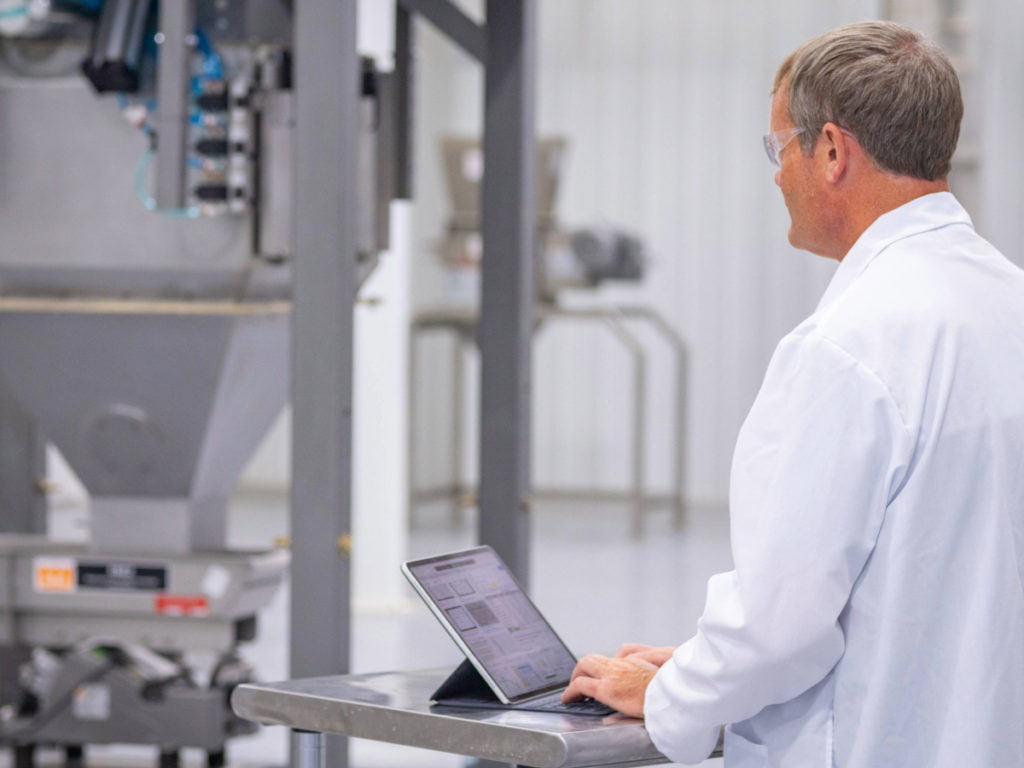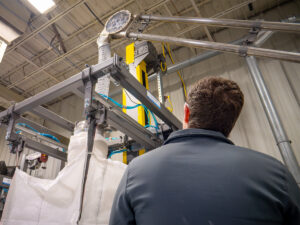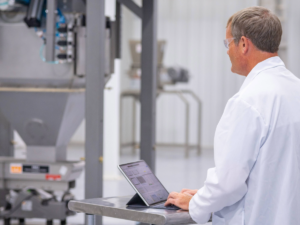Testing out bulk bag handling equipment before you make a purchase is a good way to prevent buyer’s remorse.
But before you take that step, you need to think about your application and the factors that are most important to achieving your operation’s goals.
According to survey results from our 2024 The State of Bulk Bag Handling report, an overwhelming majority (97%) of production managers, engineers and executive managers in the food, chemical and consumer products industries agree that testing a new system before purchase is a crucial step in the decision-making process.
However, when asked what type of test would be most helpful in evaluating a new machine, their answers were more diverse. Here are the top four tests cited in the survey, ranked by the percentage of respondents:
1. Weighing Accuracy – 52%
Precision in the amount of material being loaded into a bulk bag is the most important thing you can test for, according to survey respondents. You don’t want to underfill and short ship to your customer. However, you don’t want to overfill and give product away. Generally speaking, +/- 1-2 lb over your target weight is considered a high margin of accuracy.
2. Dust Emission – 43%
Dust that isn’t properly contained can pose a number of issues. Taking the time to test how well a bulk bag discharger or filler’s dust extraction system draws away dust as you empty and fill material can help you avoid potential problems down the road, including an elevated risk of fire or explosions, hazardous working conditions for staff, equipment damage, contamination and product loss.
3. Flow Rate – 40%
How quickly your product can be discharged from a bulk bag can provide insight into achievable throughput, which can help you optimize production efficiency and meet operational goals.
4. Densification/Compaction – 35%
Testing for densification/compaction can help you determine if the bulk bag filling equipment is set up to fill bulk bags safely and correctly. With the right type of densification system added to your filling process, a properly densified bulk bag should not slump and will hold more product than a poorly densified bag.
Other tests cited as being helpful included testing to reveal unknown issues (35%), ergonomics (34%), throughput (30%), using smaller bulk bag sizes (29%) and filling more product in the same size bag (28%).
Interested in Learning More?
To view the full report, visit: spiroflow.com/2024-state-of-bulk-bag-handling/
Test Your Equipment With Spiroflow
Spiroflow’s advanced testing facilities, located in the UK, Germany and the U.S., are fully equipped with flexible screw, aero mechanical and tubular drag conveyors, as well as bulk bag fillers and unloaders. Using a sample of your material, we can simulate your site conditions to include conveyor length, flow rate and lift angle wherever possible.
Testing can be conducted either in-person or remotely for those who can not make the visit to our testing labs.
Learn more about testing at: spiroflow.com/material-testing-machine-trials







